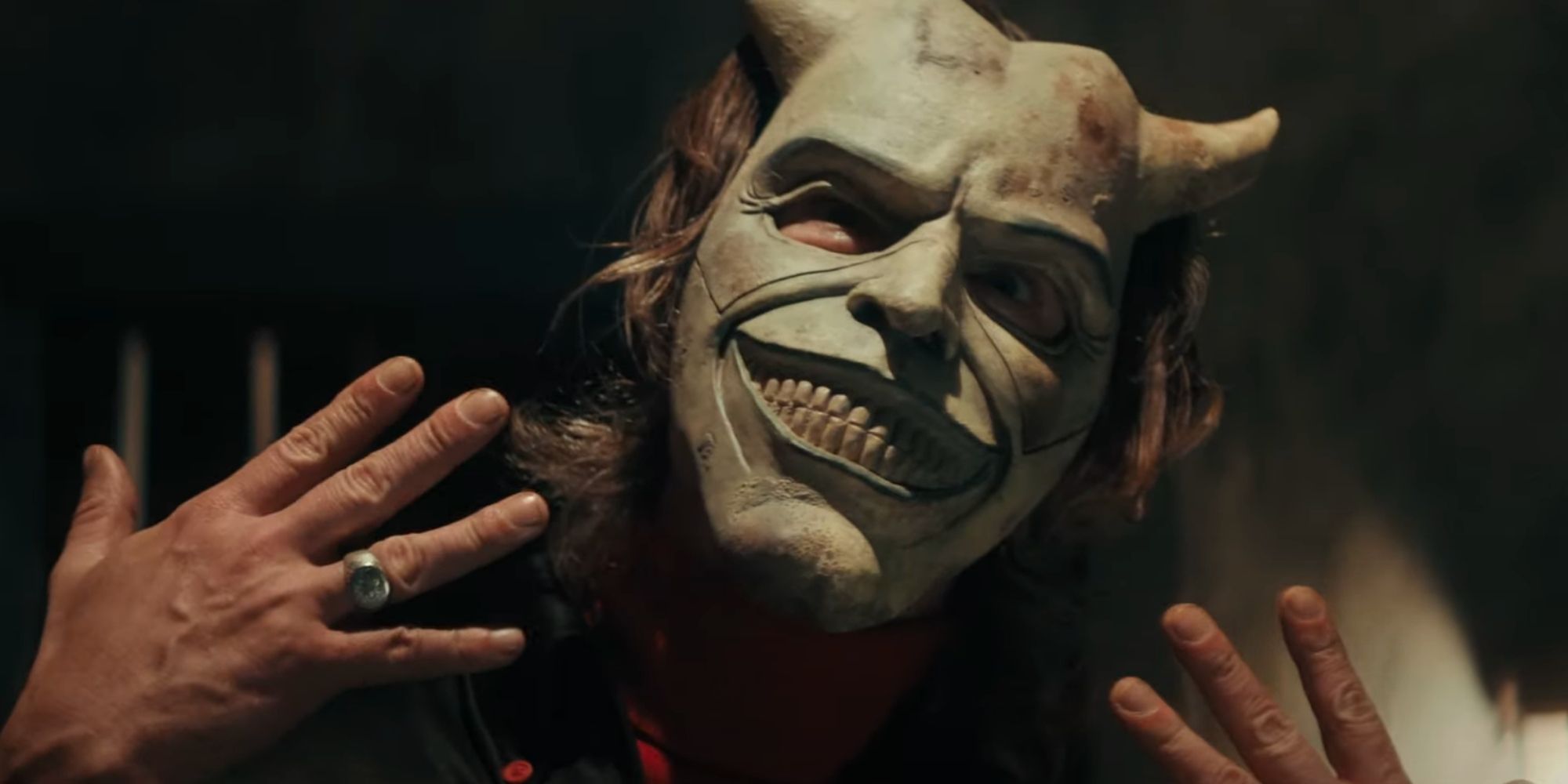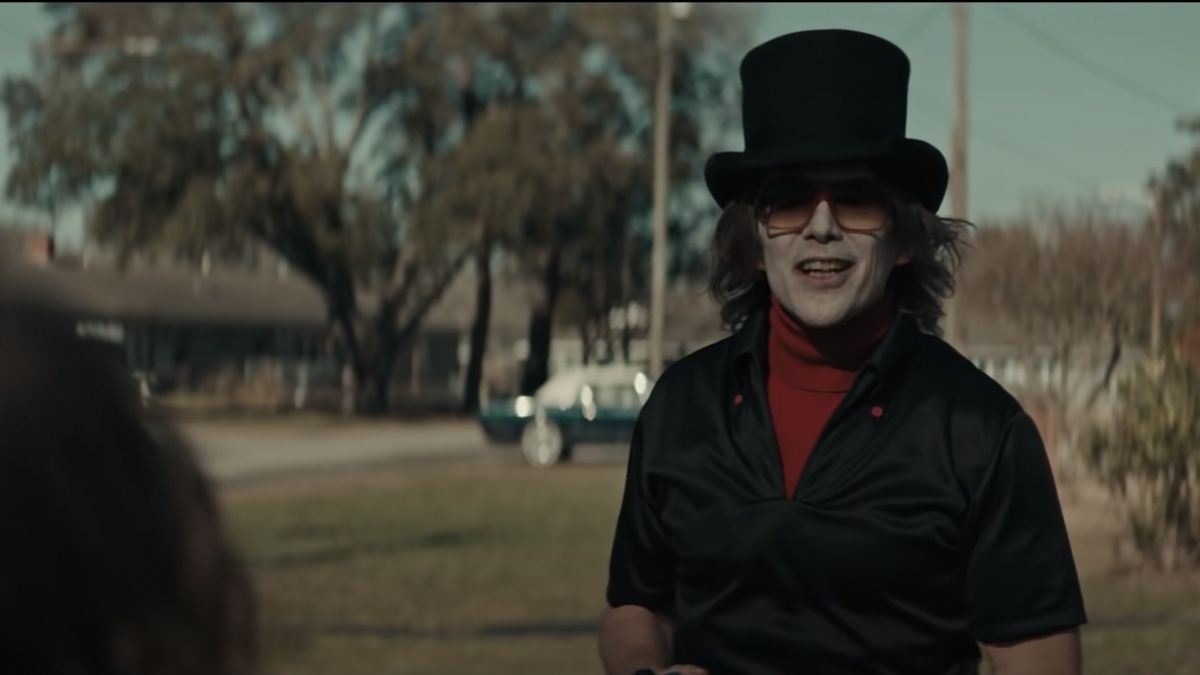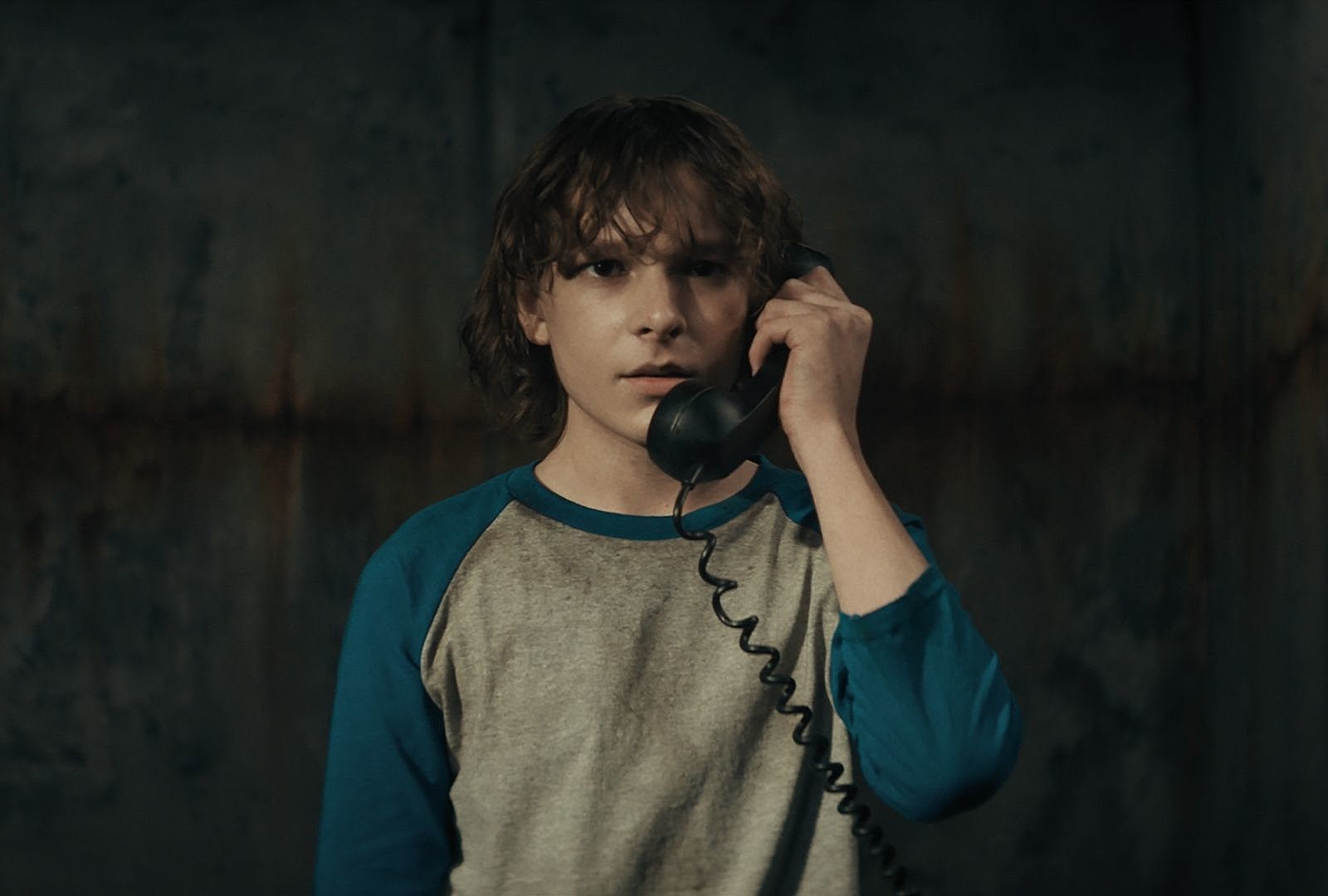The Black Phone was probably the horror movie I was most excited for this year. Based on a Joe Hill short story, and directed by Scott Derrickson, who directed one of my favorite recent horror films, Sinister, it seemed to have everything going for it. I was ready to love it.
And yet, I did not.
Set in 1978, in a small, working-class suburb in West Denver, the town has been besieged by a series of child kidnappings. Interestingly, no one seems particularly terrified by these seizures. There has been no curfew installed, and no one seems to change their daily routines. It’s weirdly background fodder. Maybe because our main kids, siblings Finney (Mason Thames) and Gwen (Madeleine McGraw), have an abusive, alcoholic father and neighborhood bullies to deal with. They can’t be worried about The Grabber (Ethan Hawke) – as the news stations have dubbed him – getting his grubby paws on them.
Until he does. Driving around in a black Abracadabra-branded minivan, The Grabber uses a bouquet of black balloons to hide a canister of gas which he uses to knock out his victim. He uses this on Finney as he is walking home from school. When Finney wakes, he is in a soundproofed basement, with only a bare mattress, a toilet, several rolled-up rugs, and a disconnected black phone on the wall.
Though that phone is disconnected, it still rings, and on the other end are the ghosts of the boys who had been kidnapped before Finney. They all offer various tips on how to escape, but none of them work. On the outside, Gwen has vaguely psychic dreams that she – and the police – hope will lead them to her brother. These dreams were a gift that was handed down from her mother, who killed herself over her own “gifts.” Gwen’s psychic gifts felt like an afterthought, or an underdeveloped red herring. It felt shoehorned into the story.
I am probably going to sound like a sadist for saying this… but there didn’t feel like there was any real danger for Finney here. He spent most of his time alone, in that basement. The Grabber didn’t touch him. He didn’t threaten him. He hardly even came downstairs and did anything weird or alarming. He could have done a bizarre dance or told a befuddling joke… anything, really. He had virtually no contact with Finney at all. It was mostly just Finney and the ghosts of dead children trying to figure a way out.
On top of that, we never knew anything about The Grabber. I’m not talking about knowing his motivation; we knew nothing. We don’t know anything other than he likes to abduct and kill adolescent boys, and there is a hint at the beginning that he was once held in a basement like the one he holds Finney in. That’s it. If we are getting a hint that he was abused as a kid, I want to know more, I want to know how that translates into a troubled adulthood. How does the mask tie into that? Why does he panic if it is removed? Is he really a magician? Why is the color black so important to him? How does he choose his victims? How long does he keep them alive? When and how does he decide to kill them? Is it a ritualized murder?
There are very few classic hallmarks of horror films in The Black Phone. They arrive in the third act, but before that, it is a lot of… nothing. Talking. No cat-and-mouse chasing. No killing. Not even any suspense. You know Finney has been kidnapped; you know who took him; you know that the previous kids are dead.
I will say that things picked up at the end, but I don’t want to say anything more for fear of spoiling it. But boy… it was a struggle getting there.
Rating: C



